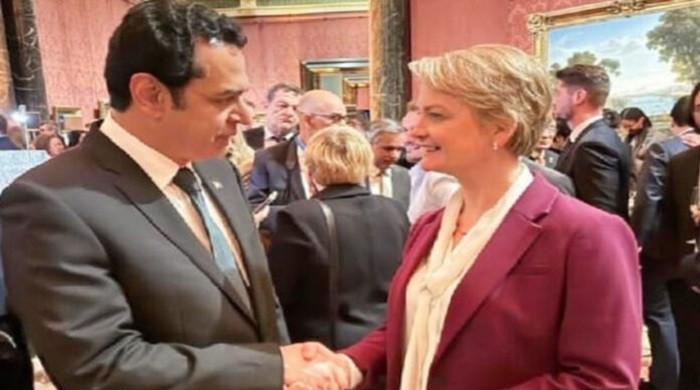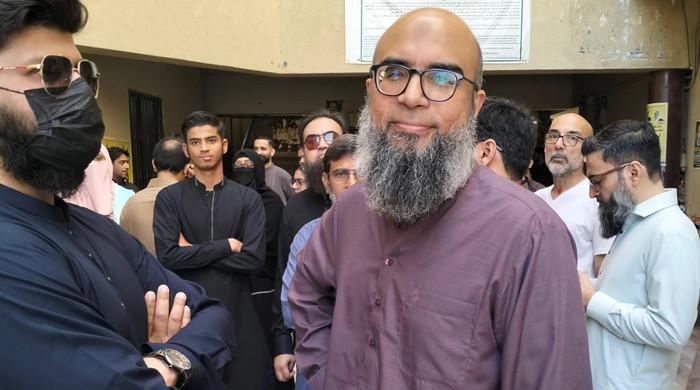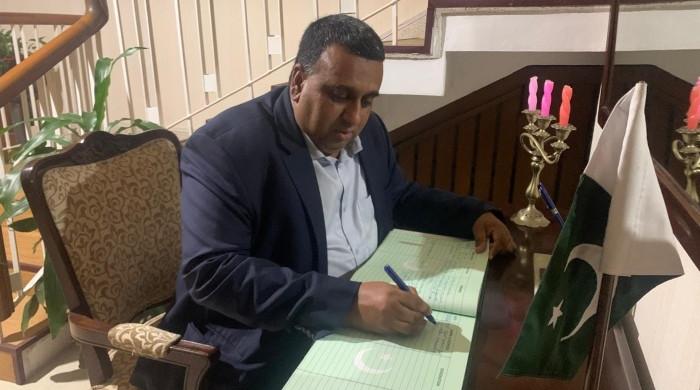PPP picks Bilawal Bhutto-Zardari as its parliamentary leader
Naveed Qamar submits documents of Bilawal nomination as parliamentary leader to NA office
October 18, 2024

- Khursheed Shah says decision taken by Bilawal will be final.
- PPP leader slams alleged harassment of parliamentarians.
- "Parliamentary party condemned abductions and arrests."
ISLAMABAD: As efforts to build consensus among all political parties ahead of the highly anticipated tweaks to the Constitution continue, the Pakistan Peoples Party (PPP) has nominated its chairman, Bilawal Bhutto-Zardari, as the party's parliamentary leader.
The development comes at a time when members of the treasury benches are scrambling to win over the opposition to vote for the 26th constitutional amendment, which mainly focuses on judicial reforms.
Talking to the media before the Parliament House in Islamabad on Friday, PPP leader and chairperson of the Special Committee of parliament on the constitutional draft Khursheed Shah confirmed his party had nominated Bilawal as the parliamentary leader.
Meanwhile, PPP leader Naveed Qamar has submitted the documents pertaining to the election of the party chairman as the parliamentary leader at the National Assembly Office.
Under the constitution, the parliamentary leader has the authority to direct members to vote on constitutional amendments, finance bills and the election of the prime minister or speaker as per the party policy.
Shah said the decision taken by Bilawal would be final and, "God willing, the constitutional amendment would take place".
"Haste is not good, everything should be done calmly. This is the amendment for which 177 of our workers were martyred today,” he said referring to the 2007 Karachi's Karsaz blast incident. He said former prime minister Benazir Bhutto had returned to Pakistan to campaign for the same amendment.
“We will never let this sacrifice go in vain,” he added.
The senior PPP leader also condemned the incidents of alleged harassment of parliamentarians a day ago. “Even today the entire parliamentary party condemned the abductions and arrests.”
Hoping for the PTI to submit its draft for the amendment today, Khursheed said the parliamentarians should have permission to freely make their decisions.
The constitutional package, among other things, aims to set up a federal constitutional court and fix the tenure of the Chief Justice of Pakistan (CJP) for three years.
The government had attempted to present the bill to amend the Constitution last month, but its allies as well as members from the opposition benches vehemently opposed the proposal, forcing the administration to begin a consultation process.
To pass the constitutional amendments, the government requires a two-thirds majority in parliament, with sources indicating a shortfall of 13 votes in the National Assembly and nine in the Senate.











